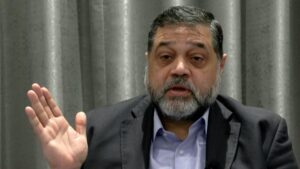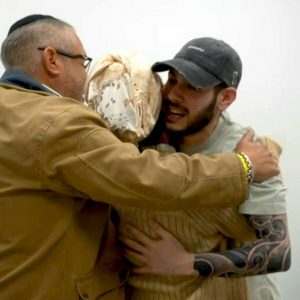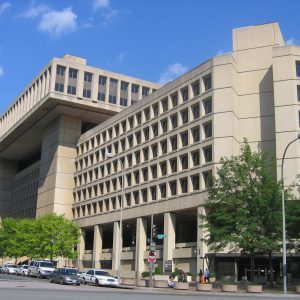Sports bring hope to many disabled people in Indian-occupied Kashmir
SRINAGAR, Jammu & Kashmir (AA) – Inshah Bashir in Indian-occupied Kashmir repeats: “Where ever there is hope, there is life” to get inspiration to fight the challenges life has thrown at her despite her physical disability.
Bashir, 28, is the captain of the Jammu and Kashmir women’s wheelchair basketball team. She recently got a national award for individual excellence from the president of India on the eve of International Disability Day. Her team won a silver medal this year at the basketball championship in India.
She said living under brutal occupation for years, she finds hope and solace in sports. “It gives me an identity and strength to achieve what I can target for,” she said. Bashir has won accolades and appreciation for her sporting abilities but she has not given up on the fight for the rights of the disabled.
In addition to being an athlete, she works as a warden with the Voluntary Medicare Society to help those with disabilities in the region, providing counseling and moral support.
She said given the miseries and suffering brought about by the occupation forces of India, there are a lot of people in Indian-occupied Kashmir who need support and a helping hand.
“If I can somehow help them out, I would be more appreciative of myself,” she said.
Disability and mental trauma
Bashir was active. She loved going out. But an accident 13 years ago took her ability to move after she fell off the balcony at home in the Budgam district.
The accident damaged her spinal cord and despite having multiple surgeries, she could not stand. She became a victim of locomotive disability and has since remained wheelchair-bound, which triggered anxieties.
“When I recall that time, it brings tears to my eyes. My head gets heavy to just think about what I have gone through,” said Bashir.
She said it is not easy to live as a disabled person. “It kills you inside and you want an end to it.”
Mental health experts in the region say physical disabilities as a result of the ongoing conflict can trigger anxiety and depression, which may lead to suicidal thoughts.
It is particularly evident in cases where someone becomes disabled through an accident or an incident at a later point in life.
“It definitely impacts a person who became disabled at a later point in life rather than one who is born like that,” Yasir Rather, a consulting psychiatrist at a mental health institute in Srinagar, said.
According to a study by Kashmiri sociologist Bashir Dabla, there are more than 600,000 people with disabilities in Indian Occupied Kashmir, with almost 50% permanently disabled.
Hope in sports
After being in depression and isolation for years, Bashir sought help in 2017 through the Shafakat Rehabilitation Centre, which is a part of the Voluntary Medicare Society.
The center was established in 1970 and is dedicated to the care, treatment and rehabilitation of those dealing with physical and mental disabilities in the wake of a deadly conflict brought about by the Indian occupation of Kashmir.
“In this center, I received a new pathway to build my life,” said Bashir, adding that the center allowed her to chase her dreams.
In 2017, Bashir saw some disabled boys at the center playing wheelchair basketball. She instantly was hooked and asked them to teach and let her play with them.
“They helped me without any hesitation and started to teach me. And I was feeling so relieved when I played it. It helped me to release that anger and frustration that had been inside me for years,” she said.
Bashir went on to participate in the March 2019 wheelchair basketball championship in the US. She attended a championship in Mohali, Punjab, the same year as captain of Jammu and Kashmir’s women’s team.
The team reached the quarterfinals for the first time as Bashir was awarded the Player of the Year in 2019. Now, she has a dream to win gold at the Paralympics.
Dr. Bashir Lone, an administrator with Voluntary Medicare Society, said that since 2015, the non-profit organization has been running a dedicated sports club for people with disabilities with the primary goal of ensuring their well-being.
“There are hundreds of disabled people we receive at our center every year. We make sure that besides getting medical treatment, they get a helping hand from us,” he said.










